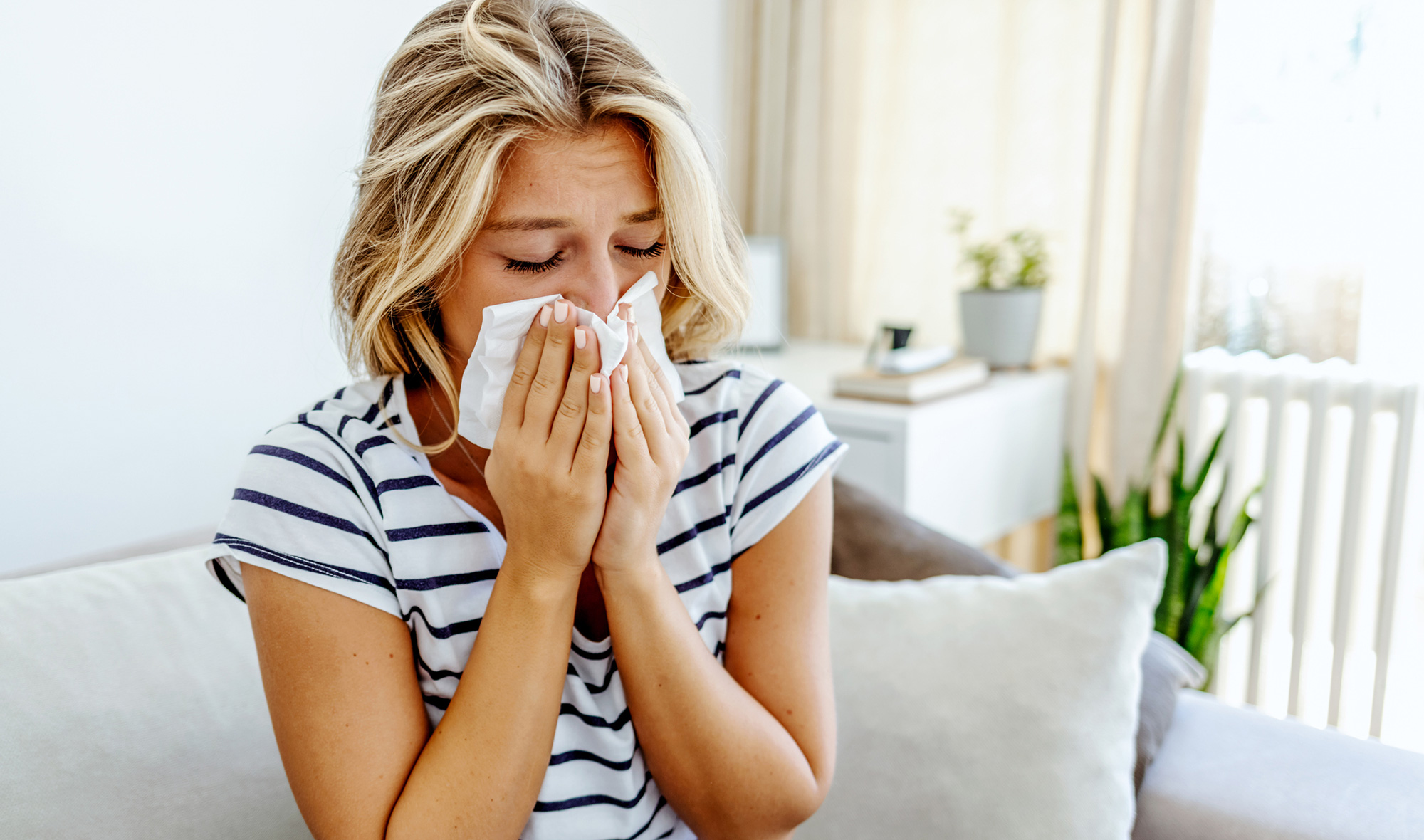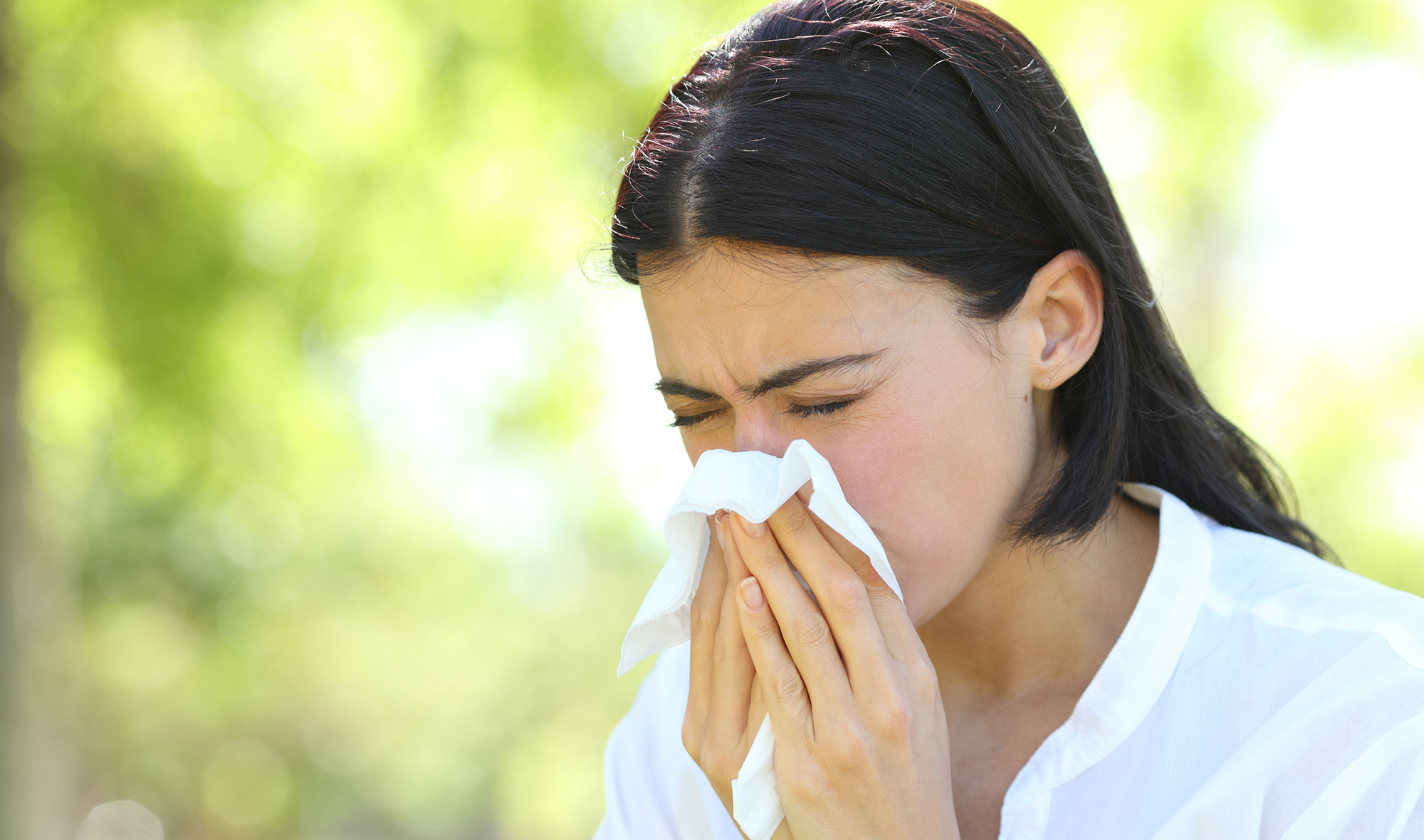The sinuses are designed to help insulate the skull and make it lighter, as well as provide resonance for our voice. These cavities contain their own defence system to keep out (or contain) bacteria and viral or fungal pathogens, which could cause infection. The mucus layer lining the membranes of the sinuses is filled with tiny hairs that are able to trap foreign invaders and propel them out of the sinuses. Unfortunately, this is not a fail-safe system, and infection does occur, particularly when the immune system of the body is suppressed through stress, exhaustion or poor nutrition.
What causes sinusitis?
Sinusitis may be an isolated, acute episode, or if you’re unlucky, chronic, recurrent episodes may develop. You are most likely to have an episode of sinusitis following a viral infection such as the common cold. The cold virus causes the nasal linings to swell, and mucus production to increase. This reduces the effective drainage of the nose, and produces a wonderful breeding ground for bacteria. Bacterial infections are likely when the symptoms have lasted more than one week. In acute sinus infections, the most likely bacteria involved are streptococcus pneumonia and haemophilus influenza, with staphylococcus often involved in chronic sinus infections.
Sinus infections can also be confused with underlying dental infections, so see your dentist if you suspect that this may be an issue. Chronic sinusitis sufferers should always consider the likelihood of underlying allergies such as hayfever or asthma. Studies have shown that between 20–75% of people with sinusitis also suffer from allergies.
Prevention and treatment
1. Treatment rationale
Treating a sinus infection usually involves several different treatment strategies. Painkillers are essential. The next aim is to reduce the inflammation of the airways. Decongestants such as over-the-counter nasal sprays may help, but should be used sparingly and for no more than five days, as their effectiveness then decreases and rebound congestion occurs. Oral decongestants can also help reduce nasal inflammation. If the symptoms last more than one week, a visit to your GP is needed as antibiotics will almost always be required. Next is the issue of promoting nasal drainage. To help this, drink lots of fluids especially water and hot herbal teas; have a steam inhalation 2–3 times a day using hot water with some added tea tree oil, vicks vapour rub or eucalyptus. Cover your head and the bowl with a towel, and inhale the steam deeply, taking care to keep your eyes closed! Repeat for 3–4 minutes. Expectorants can also help to thin the nasal mucus. Antihistamines may be needed if the underlying cause of nasal swelling is an allergic reaction. Allergens cause the white blood cells in blood and tissues to release histamine into circulation. This causes fluid to leak from the blood vessels into the tissues of the nasal passages causing congestion.
2. Allergy-proof your home
Sometimes allergies to dust mites can lead to chronic sinusitis. To overcome this, an air-filtering vacuum cleaner and installation of an air cleaner with a HEPA filter may help. In the worse-case scenarios, pets, carpeting and feather-bedding may have to go!
3. Evaluate chronic sinusitis
It’s very important that if you suffer from two or more sinus infections for two or more years, that you are evaluated for underlying causal conditions. CT scanning is the most effective way to do this and to determine whether surgery will be helpful. In 50–60% of chronic sinus cases, allergic rhinitis is an underlying factor, with a further 20–30% of cases caused by non-allergic rhinitis. In around 20–30% of cases an anatomical abnormality such as a deviated septum is the cause. There seems to be some connection between asthma and sinusitis, with around 80% of asthmatics also having rhinitis (nasal mucus and post-nasal drip) symptoms. Allergy to fungi may also be associated with nasal polyps and asthma. Damp living conditions and exposure to environmental pollutants can also cause chronic sinusitis.
4. Prevention tips
If you are a regular sinusitis sufferer it is important not to smoke, and to avoid environments where you are exposed to second-hand smoke. Drinking alcohol causes swelling and congestion of the nasal membranes in a lot of people, so not drinking, or moderating your alcohol intake is a good idea. Swimming in chlorinated pools (especially indoor pools) can cause the same nasal congestion which may trigger another sinus attack.
5. Stomach bacteria connection
There may be an interesting connection between chronic sinus issues and the presence of helicobacter pylori bacteria in the stomach (one of the causes of stomach ulcers). In a study involving asthmatics and eczema sufferers who also suffer from chronic sinusitis, the elimination of helicobacter infection, through antibiotics, also eliminated chronic sinusitis and allergy symptoms in a significant number of these patients. If you have stomach problems as well as sinus issues, it may be worth asking your doctor to test you for the presence of H pylori.

















Community